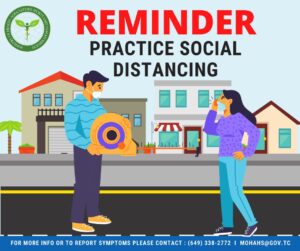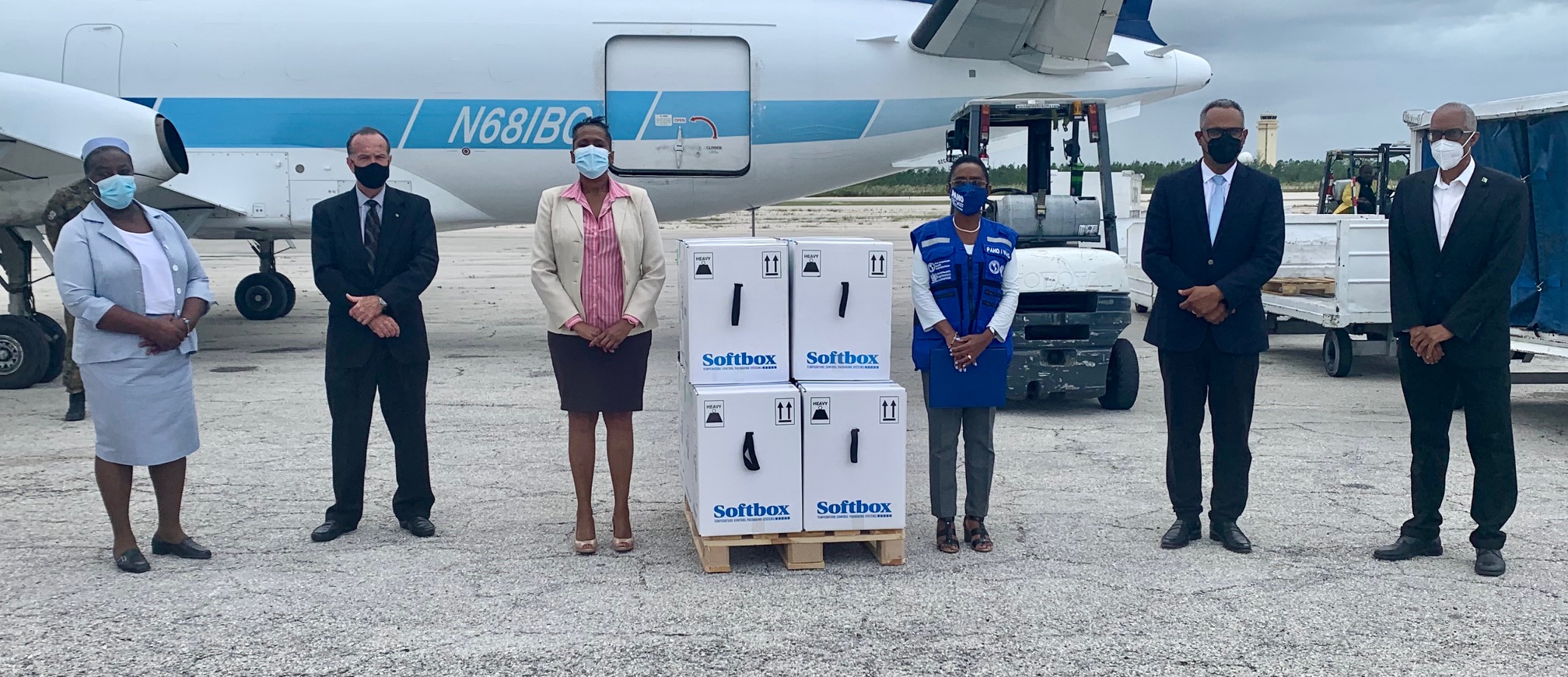#TheBahamas, October 26, 2021 – The Bahamas received some 57,330 doses of Pfizer vaccine as the country continues to rollout the national vaccination pogramme against the COVID-19 virus.
The Minister of Health and Wellness the Hon. Dr Michael Darville was on hand to receive the latest tranche of vaccines, which arrived at the Lynden Pindling International Airport on Thursday, October 21, 2021. Also present were health officials, and PAHO/WHO Country Representative Dr. Eldonna Boisson.
The Pan American Health Organization (PAHO) assisted The Bahamas in receiving the vaccines – the fourth batch — through the COVAX facility, which is a worldwide initiative aimed at equitable access to COVID-19 vaccines, tests and therapies.
Dr. Darville on behalf of the Bahamian people thanked PAHO and all others, who were instrumental in the country getting the vaccines. “These vaccines are absolutely essential for our vaccination programme and we have people throughout our Family Islands just waiting for the doses to arrive.
“We are pleased that they are here today and you will see very soon that we will bump up the amount of vaccinations at our various centres not only in New Providence and Grand Bahama but also throughout the Family Islands,” he said.
Dr. Darville explained that the vaccination teams would move “very quickly” because there are people at the various centres waiting to be inoculated with the Pfizer vaccine.
“The programme was scaled back a little bit because we needed to have the vaccines on ground. They are here. They will be stored effectively and you will begin to see even a greater rollout because the appetite and the demand for vaccines particularly Pfizer is definitely on the rise, and that is a good sign for us and we need to be able to adequately meet the demand with the supply” he said.
According to Dr. Darville, the rollout of this tranche of vaccines is expected as early as Friday (Oct 22). And, this will be realized throughout the Family Islands mainly those where there are high incidences of COVID-19 cases.
“Thanks to PAHO and thanks to all of the other parties involved, we are actually early and that is a good sign for us,” he said, referring to the tentative date of November 1, 2021 rollout.
Added Dr. Darville, “It’s just the small logistics of getting the vaccines to the various locations because the people are very interested throughout the country to be vaccinated because they are finally understanding that [for] the individuals who are vaccinated, the chances of hospitalization if you get COVID is very low, and the chances of death if you get COVID is very low.
These are the things that we keep pushing and the Bahamian people are responding in a very positive way to the vaccines.”
Dr. Boisson said that PAHO/WHO was happy to have been able to assist with the delivery of these much-needed doses.
“We look forward to further assisting by facilitating the provision of more vaccines in the future through the PAHO Revolving Fund, to complement other vaccine supplies and donations,” she said.
Dr. Boisson credited The Bahamas for doing an excellent job of rapidly rolling out COVID-19 vaccines as they become available.
She noted though that the main challenge to the programme has been limited access to vaccines at times, which is because global demand continues to far exceed supply.
“However, here in The Bahamas you are fortunate to have three of the six WHO Emergency Use Listing (EUL) approved vaccines available to you, namely Pfizer, AstraZeneca and Janssen (or Johnson and Johnson).
“All these vaccines are safe and effective. They have all gone through the same stringent regulatory process in order to be granted WHO EUL approval. They all provide significant protection against severe illness and death,” she said.
Dr. Darville and the Dr. Boisson urged the public to get vaccinated, and also to follow the health safety protocols – wearing of masks, hand sanitizing, and social distancing.
By Lindsay Thompson
Release: BIS
Photo Caption: The Bahamas received 57,330 doses of the Pfizer vaccine, which arrived at the Lynden Pindling International Airport on Thursday, October 21, 2021. Pictured from left are National Immunization Programme Manager Nurse Ruth Bastian; Colin Higgs, Permanent Secretary, Ministry of Health and Wellness; Dr. Pearl McMillan, Chief Medical Officer; PAHO/WHO Country Representative, Dr. Eldonna Boisson; Minister of Health and Wellness the Hon. Dr. Michael Darville; and Danny Davis, Co-Chair Ministry of Health and Wellness Vaccination Committee.
(BIS Photo/Kristaan Ingraham)

